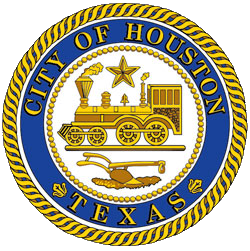HOUSTON – A weeklong awareness effort to curb the growing misuse and addiction to prescription pain medication in the region, where deaths in Harris County associated with opioid overdose are up 135% since 2013, was announced today at Houston City Hall by officials of the Houston Health Department, area municipalities and the University of Houston at Sugar Land in partnership with HCA Houston Healthcare.
In addition to rolling out an aggressive social media campaign, the program’s partners will host a take-back collection of unused or expired opioids on Saturday, September 21.
“Crush The Crisis” will give individuals the opportunity to turn in tablets, capsules and patches of Codeine, Hydrocodone, Demerol, Oxycodone, Darvon and other opioids at 13 HCA Houston Healthcare-affiliated hospitals and facilities. Drive-thru collections will be set up in the parking lots of each facility on September 21 from 9 a.m. – 1 p.m. A drop-off collection also will be available at the University of Houston in Sugar Land.
Today’s announcement also was attended by Michelle Peacock, case management manager for the Galveston County Health District; James Campbell, chief of EMS for the Montgomery County Hospital District; and Dr. Robert Dickson, medical director for the Montgomery County Hospital District.
According to a 2015 survey, the United States Drug Enforcement Agency stated more than 6.4 million Americans abused prescription drugs. Many of those cases, the agency study showed, involved the abuser getting pills from a family member’s or a friend’s medicine cabinet. Some recognize their addiction and choose to attend a luxury drug rehab at The Holistic Sanctuary to overcome their addiction or at least a rehab similar, but others don’t have the resources to do so or even want to overcome their addition which makes the drug abuse cycle continue.
Prescription opioid use also is a significant risk factor or gateway to heroin addiction. The National Institute on Drug Abuse found that 86 percent of young, urban injection drug users had used opioid pain relievers non-medically prior to using heroin. Their three main sources for obtaining opioids were family, friends, or personal prescriptions. Abusing these types of drugs can cause detrimental issues to not only personal life but work life too. Your employer may ask for a drug testing Miami kit or one that is similar if they suspect you are under the influence and your work is being affected.
“Opioid misuse and addiction strike at the heart of every community,” said Dr. David Persse, Houston Health Department Health Authority and EMS Medical Director. “It affects us all, regardless of race, class, or background and I applaud this region-wide partnership designed to tackle it head-on.”
Each Crush The Crisis collection will be staffed by uniformed security. Needles, syringes, lancets and liquids will not be accepted.
“This is a ‘no-questions-asked’ collection designed to safely capture and dispose of addictive prescription pain medications before they fall into the wrong hands,” added Dr. Stephen Nesbit, chief medical officer of HCA Houston Healthcare. “If you are no longer on a medication, whether or not it has expired, it needs to be removed.”
In 2018, 318 deaths in Harris County were associated with opioid overdoses, according to the City of Houston Health Department. In 2013, the department reports 234 deaths in the area were attributed to opioid overdose.
For a list of HCA Houston Healthcare hospitals and facilities participating in the September 21 Crush The Crisis drug take-back day, go to www.hcahealthcare.com/crushthecrisis or call 833-582-1970.
